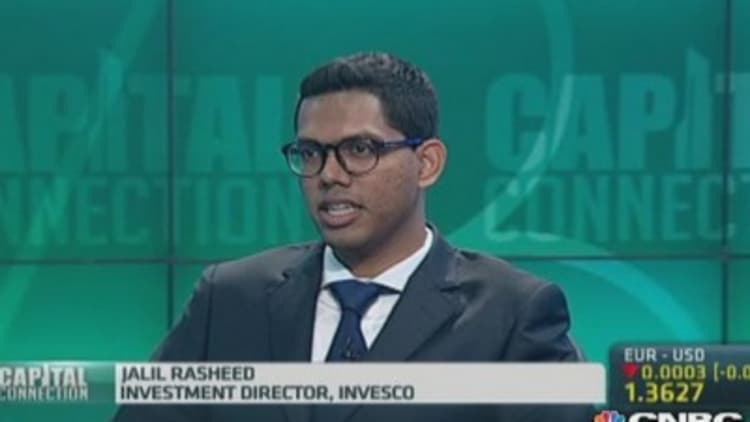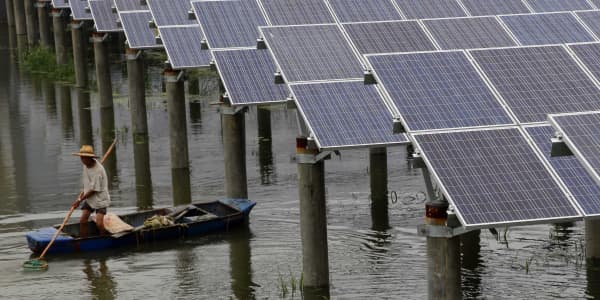A strong economic backdrop and political uncertainty in neighboring nations means Indonesia is poised to become Asia's new manufacturing hub, experts say.
"Indonesia does has the potential to take the number one spot in Asian manufacturing due to a combination of its economic factors and geopolitics," said Wellian Wiranto, economist at OCBC Bank.
Several companies have announced plans to expand into Indonesia. In May, General Electric said it's exploring the possibility of making Indonesia its business Southeast Asian business hub, while South Korean electronics giant LG plans to open an air conditioner plant in West Java this month.
Japanese carmaker Toyota said last week that it's considering Indonesia for an export production base. That follows the firm's plan to invest $337 million into a new Indonesia-based factory.
Indonesia's automobile production ranks second regionally after Thailand. The Trade Ministry expects car exports to hit $5 billion this year, marking 10 percent annual growth.
Healthy fundamentals
A Euromonitor report released over the weekend outlined several factors that make Indonesia attractive to manufacturers including low labor costs and a large population.
Read MoreIndonesia will suffer capital outflows again: Fin Min
"Compared with other countries in Asia Pacific, Indonesia also has the most attractive hourly wage. This means that production costs are lower and thus manufacturer profits are higher," Thidathip Tawaichi, consumer appliances analyst at Euromonitor wrote.
In this aspect Indonesia stands out against powerhouse China, where wages have risen 10 to 15 percent annually in recent years, threatening its status as the world's factory.
Boasting the world's fourth-largest population at 250 million people, Indonesia's consumer purchasing power is also appealing. Indonesian households with an annual disposable income exceeding $10,000 increased from six million in 2008 to 16 million in 2013, according to Euromonitor.
Read MoreThe age of the Asian consumer has arrived
Regional tensions
Political uncertainty in manufacturing hotspots like Thailand and Vietnam is also pushing foreign business towards Indonesia, said OCBC's Wiranto.
Thailand continues to struggle under a military coup launched in May, which threatens its status as a low-cost production hub. Manufacturing output fell to a two-and-a-half-year low in April, marking the 13th straight month of declines.
Despite the army's efforts to reconcile opposing political groups, analysts remain bearish.

In a research note published Monday, Hozefa Topiwalla, managing director of research at Morgan Stanley, said the country's political equity risk premiums will remain high. He expects slower growth for a while longer.
Read MoreThai junta hopes to save an economy in trouble
Vietnam, another regional base for global supply chain operations, saw the worst outbreak of civil unrest in several decades in May. Protestors set fire to foreign factories and engaged in widespread riots in retaliation against Beijing's decision to station an oil rig in the disputed South China Sea waters.
Taiwanese, South Korean, Japanese and Chinese plants were affected, which saw large suppliers like Foxconn suspend operations for several days.
Domestic politics
The July election between presidential candidates Prabowo Subianto and Joko Widodo is in focus. Taiwan's Foxconn Technology Group, for instance, is awaiting the results before it decides whether to proceed with a $1 billion manufacturing project.
Read MoreThis will matter most for Indonesia's next president
Wiranto notes that while neither candidate has made manufacturing a main priority, both emphasized the need for increased infrastructure spending, which should encourage foreign investors.




